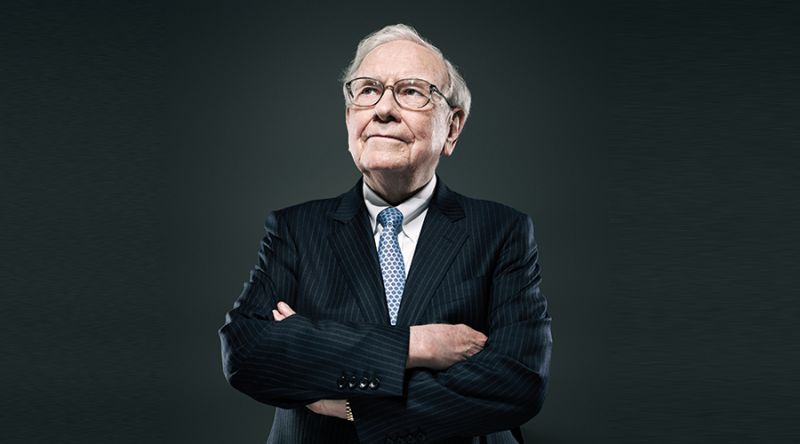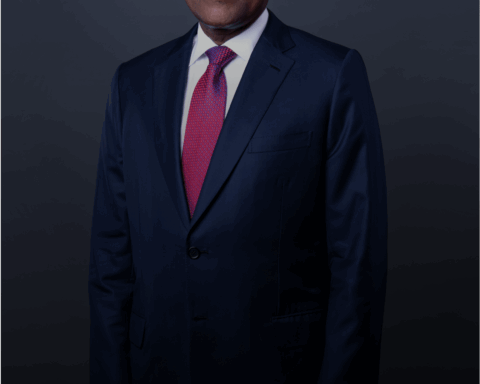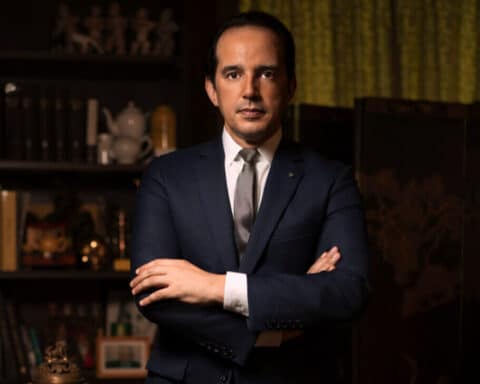At the age of 94, Warren Buffett announced on May 3, 2025, his surprise retirement from the management of his investment company, Berkshire Hathaway, at the annual general meeting. With the departure of the “Oracle of Omaha,” a major chapter in the history of capitalism is coming to a close.
A patient, reasonable, and conservative investor, Warren Buffett has left his legendary mark on the global financial market over the past 60 years.
Contrary to the commonly accepted view of finance as a means of quickly accumulating wealth, Warren Buffett sees it as an almost scientific field of study.
A businessman, investor, and philanthropist, the man Wall Street nicknamed “the Oracle” has risen to become the sixth richest person in the world, with a net worth of $154 billion (€143 billion) according to the latest World’s Billionnaire List by Forbes magazine.
He is one of the few American captains of industry whose fortune has not been affected by the current trade tensions with the United States.
Early beginnings
Born in 1930 in Omaha, Nebraska, to a stockbroker and politician father, Warren Buffett showed an entrepreneurial flair from an early age: he sold chewing gum, delivered newspapers —specifically the Washington Post—earning $175 a month at the age of 15.
He bought his first shares at the age of 11. Six shares to be exact, three for himself and the equivalent for his sister at $35 each. Learning from his mistakes, he vowed never to repeat his “premature” withdrawal when he acquired his first stock: the natural gas company Cities Service Preferred. He felt he had sold his shares too soon following a temporary decline. He retained his long-term investment vision, patiently poring over the accounts of the companies in which he invested.
After studying at the University of Nebraska and then at Columbia Business School, where he earned a master’s degree in economics, he had the opportunity to take classes with Benjamin Graham, an economist and investor known for his value investing theory, whose philosophy he adopted: buy solid, well-managed but undervalued companies and hold them for the long term.
In 1956, Warren Buffett, then aged 26, founded his first company, Buffett Associates Ltd.
The Berkshire Hathaway empire
Nine years later, Warren Buffett took control of Berkshire Hathaway, a declining textile company, which he transformed through a series of acquisitions and investments into a sprawling holding company. While anyone else would have rushed to sell off the company’s assets, the budding investor chose to review the company’s business model.
Following this logic, he went on to acquire the American insurance company Geico and Duracell batteries, among others. But above all, he bought shares in Coca-Cola, Apple, Chevron, Bank of America, and American Express, applying a strategy based on value and longevity.
Under his leadership, Berkshire Hathaway became one of the world’s most respected conglomerates and the eighth largest company by market capitalization, with more than $800 billion in assets—an extraordinary achievement for a non-tech American company.
Billionaire but frugal and philanthropic
One of Warren Buffett’s paradoxes is his legendary modesty. Despite a personal fortune of $154 billion (€143 billion), he still lives in the Omaha home he bought in 1958, drives a standard car, drinks Diet Coke, and eats at McDonald’s. He spends his days reading and playing bridge, far from the ostentatious lifestyle of his billionaire counterparts in Silicon Valley.
Buffett has repeatedly said that he has no need to leave his fortune to his children. In 2006, he began making significant donations to the Bill & Melinda Gates Foundation. In 2010, he launched the Giving Pledge in collaboration with Bill Gates, encouraging billionaires to give away most of their wealth. He has already donated more than $50 billion.
More surprisingly, Warren Buffett, an outspoken Democrat, has set himself apart from his ultra-wealthy counterparts with his support for heavy taxation of billionaires, arguably one of his few failures.
The next generation
His successor is already known: Greg Abel, current vice president of Berkshire Hathaway’s non-insurance business and designated heir apparent since 2021. This 62-year-old Canadian who has flown under the radar will take the reins of the company in early 2026, taking control, according to Bloomberg, of “a $1.2 trillion behemoth with a portfolio of companies such as Apple and American Express that spans sectors including insurance, energy, railways, and consumer products.”
Although the sprightly nonagenarian has announced his retirement, he will nevertheless remain involved in the company as an advisor. However, the management style is likely to change. Indeed, it will be difficult to match his quiet authority, sharp humor, and unique ability to navigate crises without succumbing to panic.
Warren Buffett has never been a financier like any other. He has proven that it is possible to succeed quietly, without fanfare or excess, by following common-sense principles. “He is one of the greatest investors of our time. His results speak for themselves: he has outperformed the S&P 500 over one year, five years, ten years, and twenty years in terms of returns,” said financial analyst Art Hogan of B. Riley Wealth Management, quoted by AFP.
In retiring, Warren Buffett leaves behind not only an empire, but a mindset. In a world where speed, short-termism and speculation reign supreme, he advocated reflection, simplicity and patience; indeed, his maxim remains a beacon for investors: “Be fearful when others are greedy, and greedy when others are fearful.” A simple principle that has become timeless.
Read also > Bryan Johnson, the man who didn’t want to grow old
Featured photo: © Michael Prince














